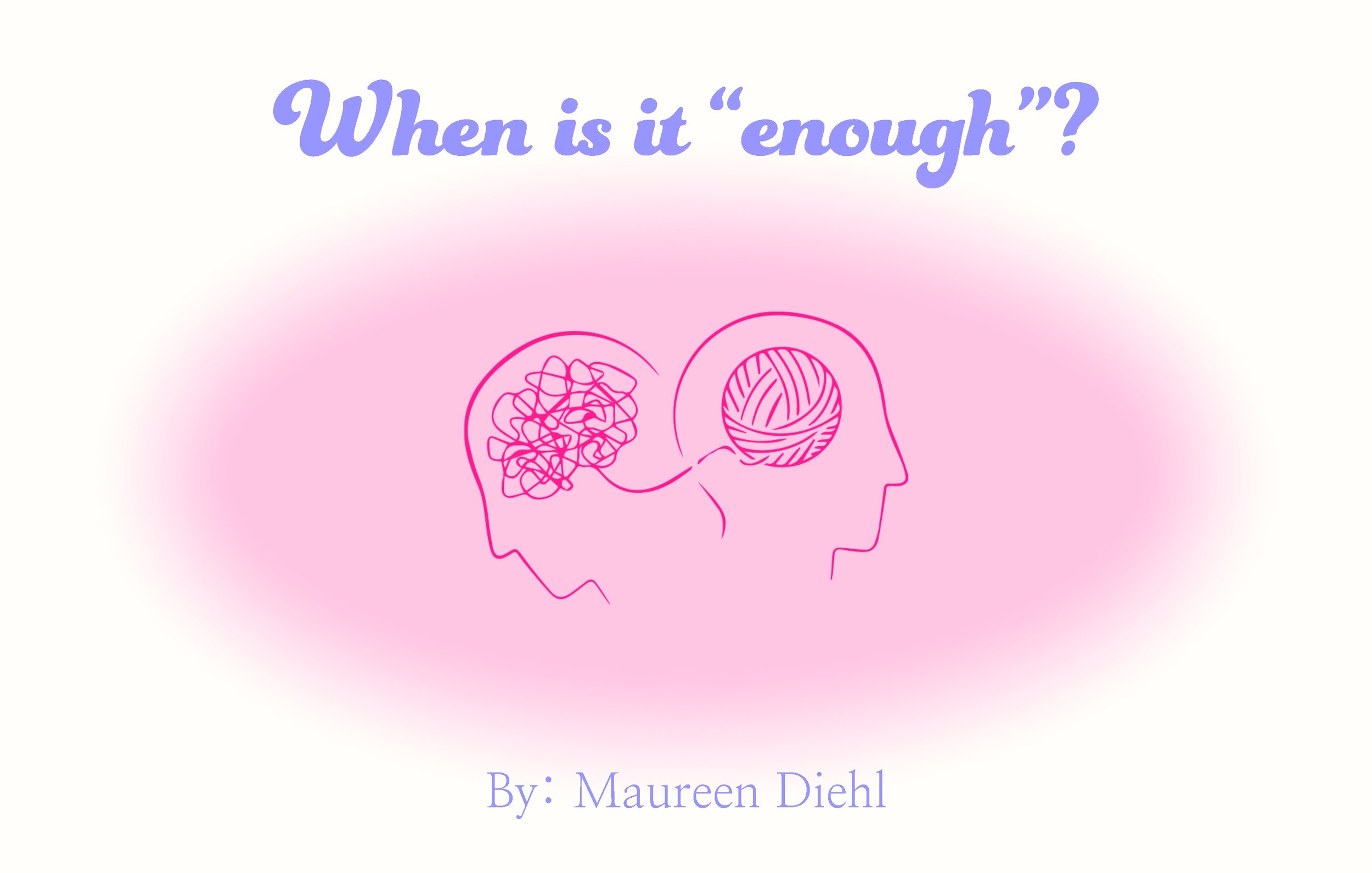May 31, 2022
Artist: Jordyn Axelrod
Editors: Melody Leibner & Ryan Hammel
Similarly to most kids, I was quick to tell my mom whenever I felt the least bit sick. If my tummy ached, she knew whether it was a piercing pain or queasy feeling. I’d list off everything I’d eaten that day in hopes she’d help me identify what could have upset it. I never hesitated to tell her when I felt physically off, and it wasn’t until I got a little bit older that I began to struggle sharing why I might feel that way.
The first time I can remember was in 2nd grade when, in the days following a school lockdown, I was experiencing severe anxiety. Of course, I didn’t know it was anxiety back then, nor did I know that my anxiousness would cause nausea and, in this particular instance, cause me to feel so nauseous I’d call home sick. When my mom picked me up that morning she asked what I thought could be upsetting my stomach and I just said “I don't know, but I don’t feel good.” The next day I felt better physically, so we brushed it off as some kind of bug.
Fast forward to high school– I was stuck in a similar situation. I was as anxious as ever, but this time, instead of being unable to explain it, I was simply unready to admit it. Between my days calling home sick from school and bailing on plans with friends, my mom started to take notice. She would occasionally ask if there was something I felt nervous about, like a test or maybe a conflict with a friend, but my answer remained a genuine “no.” As I soon found out, my anxiety disorder is often triggered by day to day life and there isn’t always a culprit.
Although I’d put together some of the pieces and realized I had psychological reasons for the way I was feeling, they didn’t feel like enough. Even as I felt like utter crap most days, the burden of my anxiety was heavily mental and emotional. Racing thoughts I couldn’t stop and irrational spirals began to detriment my focus, and I felt like a hollow shell of myself. But this sickness couldn’t be treated by an antibiotic or a bowl of soup, so I didn’t know how or if I should speak up.
My mental health finally became “enough” of an issue when my compulsive hair pulling created bald spots so burdensome I found myself with no other option than to ask for help. It was at my annual check-up at the pediatrician’s office just before my senior year of high school. After my mom stepped out and my doctor finished the routine questions, she plainly asked how I was and if I had any concerns about my health. Uncontrollably, I let out tears and a fragmented “My mental health- I think it’s anxiety.”
My doctor calmly and supportively reacted, offering reassurance and the names of a few therapists in town whom she trusted. Soon after that appointment, my therapy journey began. That conversation with my doctor was the turning point. It was when my parents and I both acknowledged my mental health as something worthy of being treated just as regularly and with as much care as my physical health.
While I do believe that everything happens for a reason, I often wonder why it took me so long to do something about my mental health. Often putting the blame on myself, I critically scrutinized the years of suffering I put myself through when I didn’t have the courage to speak up and ask for help. Nonetheless, I’ve found gratitude for the physical ways in which my mental illness manifested itself. They were the only signs familiar to me to signal that something was wrong; at the time, I didn’t know that mental health struggles don't need to have a corresponding physical response in order to elicit seeking treatment. Physical health is no more important or worthy of treatment than mental health. How you feel is reason enough.

